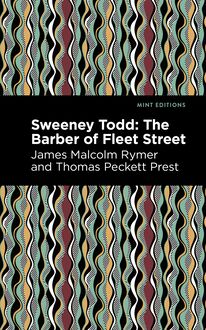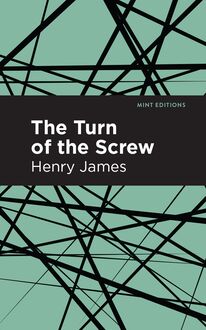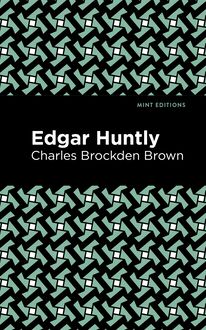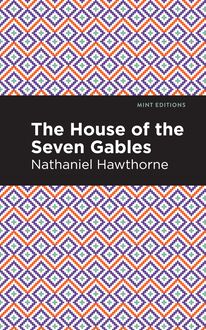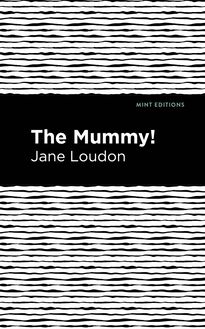-
 Univers
Univers
-
 Ebooks
Ebooks
-
 Livres audio
Livres audio
-
 Presse
Presse
-
 Podcasts
Podcasts
-
 BD
BD
-
 Documents
Documents
-
- Cours
- Révisions
- Ressources pédagogiques
- Sciences de l’éducation
- Manuels scolaires
- Langues
- Travaux de classe
- Annales de BEP
- Etudes supérieures
- Maternelle et primaire
- Fiches de lecture
- Orientation scolaire
- Méthodologie
- Corrigés de devoir
- Annales d’examens et concours
- Annales du bac
- Annales du brevet
- Rapports de stage
La lecture à portée de main

Vous pourrez modifier la taille du texte de cet ouvrage
Découvre YouScribe en t'inscrivant gratuitement
Je m'inscrisDécouvre YouScribe en t'inscrivant gratuitement
Je m'inscrisEn savoir plus
Vous pourrez modifier la taille du texte de cet ouvrage
En savoir plus

Description
The Lady of the Shroud (1909) is a novel by Irish author Bram Stoker. Written just before the outbreak of the Balkan Wars, The Lady of the Shroud is a prophetic and politically informed work of fiction that helped to establish the Irish master of Gothic horror’s reputation as a leading writer of the early-twentieth century.
When Rupert Saint Leger is unexpectedly named heir to his uncle’s fortune, he is even more surprised to learn the details of the inheritance: before receiving control of the estate, worth over one million pounds, he must live for one year in a secluded castle on the Dalmatian coast. Undaunted, Rupert travels to the Land of the Blue Mountains, where he befriends the local peasantry by purchasing them a stockpile of weapons with which to defend themselves from an impending Turkish invasion. One night, however, in the middle of a violent storm, he discovers a strange woman who seems to have wandered into the castle seeking warmth. She continues to visit, and, despite suspecting her to be a vampire, Saint Leger falls in love with the mysterious woman. When a group of soldiers kidnaps her, however, he finds himself caught between romance and a quickly escalating conflict involving a local warlord and an invading Turkish army. The Lady of the Shroud is a work of adventure and Gothic horror that explores the rich history and ancient mythology of the Balkan peninsula.
With a beautifully designed cover and professionally typeset manuscript, this edition of Bram Stoker’s The Lady of the Shroud is a classic of Irish literature reimagined for modern readers.
Sujets
Informations
| Publié par | Mint Editions |
| Date de parution | 09 février 2021 |
| Nombre de lectures | 0 |
| EAN13 | 9781513276502 |
| Langue | English |
| Poids de l'ouvrage | 2 Mo |
Informations légales : prix de location à la page 0,0500€. Cette information est donnée uniquement à titre indicatif conformément à la législation en vigueur.
Extrait
The Lady of the Shroud
Bram Stoker
The Lady of the Shroud was first published in 1909.
This edition published by Mint Editions 2021.
ISBN 9781513271507 | E-ISBN 9781513276502
Published by Mint Editions ®
minteditionbooks .com
Publishing Director: Jennifer Newens
Design & Production: Rachel Lopez Metzger
Project Manager: Micaela Clark
Typesetting: Westchester Publishing Services
C ONTENTS B OOK I: T HE W ILL OF R OGER M ELTON B OOK II: V ISSARION B OOK III: T HE C OMING OF THE L ADY B OOK IV: U NDER THE F LAGSTAFF B OOK V: A R ITUAL AT M IDNIGHT B OOK VI: T HE P URSUIT IN THE F OREST B OOK VII: T HE E MPIRE OF THE A IR B OOK VIII: T HE F LASHING OF THE H ANDJAR B OOK IX: B ALKA
Book I
T HE W ILL OF R OGER M ELTON
The Reading of the Will of Roger Melton and all that Followed
Record made by Ernest Roger Halbard Melton, law-student of the Inner Temple, eldest son of Ernest Halbard Melton, eldest son of Ernest Melton, elder brother of the said Roger Melton and his next of kin.
I consider it at least useful—perhaps necessary—to have a complete and accurate record of all pertaining to the Will of my late grand-uncle Roger Melton.
To which end let me put down the various members of his family, and explain some of their occupations and idiosyncrasies. My father, Ernest Halbard Melton, was the only son of Ernest Melton, eldest son of Sir Geoffrey Halbard Melton of Humcroft, in the shire of Salop, a Justice of the Peace, and at one time Sheriff. My great-grandfather, Sir Geoffrey, had inherited a small estate from his father, Roger Melton. In his time, by the way, the name was spelled Milton; but my great-great-grandfather changed the spelling to the later form, as he was a practical man not given to sentiment, and feared lest he should in the public eye be confused with others belonging to the family of a Radical person called Milton, who wrote poetry and was some sort of official in the time of Cromwell, whilst we are Conservatives. The same practical spirit which originated the change in the spelling of the family name inclined him to go into business. So he became, whilst still young, a tanner and leather-dresser. He utilized for the purpose the ponds and streams, and also the oak-woods on his estate—Torraby in Suffolk. He made a fine business, and accumulated a considerable fortune, with a part of which he purchased the Shropshire estate, which he entailed, and to which I am therefore heir-apparent.
Sir Geoffrey had, in addition to my grandfather, three sons and a daughter, the latter being born twenty years after her youngest brother. These sons were: Geoffrey, who died without issue, having been killed in the Indian Mutiny at Meerut in 1857, at which he took up a sword, though a civilian, to fight for his life; Roger (to whom I shall refer presently); and John—the latter, like Geoffrey, dying unmarried. Out of Sir Geoffrey’s family of five, therefore, only three have to be considered: My grandfather, who had three children, two of whom, a son and a daughter, died young, leaving only my father, Roger and Patience. Patience, who was born in 1858, married an Irishman of the name of Sellenger—which was the usual way of pronouncing the name of St. Leger, or, as they spelled it, Sent Leger—restored by later generations to the still older form. He was a reckless, dare-devil sort of fellow, then a Captain in the Lancers, a man not without the quality of bravery—he won the Victoria Cross at the Battle of Amoaful in the Ashantee Campaign. But I fear he lacked the seriousness and steadfast strenuous purpose which my father always says marks the character of our own family. He ran through nearly all of his patrimony—never a very large one; and had it not been for my grand-aunt’s little fortune, his days, had he lived, must have ended in comparative poverty. Comparative, not actual; for the Meltons, who are persons of considerable pride, would not have tolerated a poverty-stricken branch of the family. We don’t think much of that lot—any of us.
Fortunately, my great-aunt Patience had only one child, and the premature decease of Captain St. Leger (as I prefer to call the name) did not allow of the possibility of her having more. She did not marry again, though my grandmother tried several times to arrange an alliance for her. She was, I am told, always a stiff, uppish person, who would not yield herself to the wisdom of her superiors. Her own child was a son, who seemed to take his character rather from his father’s family than from my own. He was a wastrel and a rolling stone, always in scrapes at school, and always wanting to do ridiculous things. My father, as Head of the House and his own senior by eighteen years, tried often to admonish him; but his perversity of spirit and his truculence were such that he had to desist. Indeed, I have heard my father say that he sometimes threatened his life. A desperate character he was, and almost devoid of reverence. No one, not even my father, had any influence—good influence, of course, I mean—over him, except his mother, who was of my family; and also a woman who lived with her—a sort of governess—aunt, he called her. The way of it was this: Captain St. Leger had a younger brother, who made an improvident marriage with a Scotch girl when they were both very young. They had nothing to live on except what the reckless Lancer gave them, for he had next to nothing himself, and she was “bare”—which is, I understand, the indelicate Scottish way of expressing lack of fortune. She was, however, I understand, of an old and somewhat good family, though broken in fortune—to use an expression which, however, could hardly be used precisely in regard to a family or a person who never had fortune to be broken in! It was so far well that the MacKelpies—that was the maiden name of Mrs. St. Leger—were reputable—so far as fighting was concerned. It would have been too humiliating to have allied to our family, even on the distaff side, a family both poor and of no account. Fighting alone does not make a family, I think. Soldiers are not everything, though they think they are. We have had in our family men who fought; but I never heard of any of them who fought because they wanted to. Mrs. St. Leger had a sister; fortunately there were only those two children in the family, or else they would all have had to be supported by the money of my family.
Mr. St. Leger, who was only a subaltern, was killed at Maiwand; and his wife was left a beggar. Fortunately, however, she died—her sister spread a story that it was from the shock and grief—before the child which she expected was born. This all happened when my cousin—or, rather, my father’s cousin, my first-cousin-once-removed, to be accurate—was still a very small child. His mother then sent for Miss MacKelpie, her brother-in-law’s sister-in-law, to come and live with her, which she did—beggars can’t be choosers; and she helped to bring up young St. Leger.
I remember once my father giving me a sovereign for making a witty remark about her. I was quite a boy then, not more than thirteen; but our family were always clever from the very beginning of life, and father was telling me about the St. Leger family. My family hadn’t, of course, seen anything of them since Captain St. Leger died—the circle to which we belong don’t care for poor relations—and was explaining where Miss MacKelpie came in. She must have been a sort of nursery governess, for Mrs. St. Leger once told him that she helped her to educate the child.
“Then, father,” I said, “if she helped to educate the child she ought to have been called Miss MacSkelpie!”
When my first-cousin-once-removed, Rupert, was twelve years old, his mother died, and he was in the dolefuls about it for more than a year. Miss MacKelpie kept on living with him all the same. Catch her quitting! That sort don’t go into the poor-house when they can keep out! My father, being Head of the Family, was, of course, one of the trustees, and his uncle Roger, brother of the testator, another. The third was General MacKelpie, a poverty-stricken Scotch laird who had a lot of valueless land at Croom, in Ross-shire. I remember father gave me a new ten-pound note when I interrupted him whilst he was telling me of the incident of young St. Leger’s improvidence by remarking that he was in error as to the land. From what I had heard of MacKelpie’s estate, it was productive of one thing; when he asked me “What?” I answered “Mortgages!” Father, I knew, had bought, not long before, a lot of them at what a college friend of mine from Chicago used to call “cut-throat” price. When I remonstrated with my father for buying them at all, and so injuring the family estate which I was to inherit, he gave me an answer, the astuteness of which I have never forgotten.
“I did it so that I might keep my hand on the bold General, in case he should ever prove troublesome. And if the worst should ever come to the worst, Croom is a good country for grouse and stags!” My father can see as far as most men!
When my cousin—I shall call him cousin henceforth in this record, lest it might seem to any unkind person who might hereafter read it that I wished to taunt Rupert St. Leger with his somewhat obscure position, in reiterating his real distance in kinship with my family—when my cousin, Rupert St. Leger, wished to commit a certain idiotic act of financial folly, he approached my father on the subject, arriving at our estate, Humcroft, at an inconvenient time, without permission, not having had even the decent courtesy to say he was coming. I was then a little chap of six years old, but I could not help noticing his mean appearance. He was all dusty and dishevelled. When my father saw him—I came into the study with him—he said in a horrified voice:
“Good God!” He was further shocked when the boy brusquely acknowledged, in reply to my father’s greeting, that he had travelled third class. Of course, none of my family ever go
Attention
En entrant sur cette page, vous certifiez :
- 1. avoir atteint l'âge légal de majorité de votre pays de résidence.
- 2. avoir pris connaissance du caractère érotique de ce document.
- 3. vous engager à ne pas diffuser le contenu de ce document.
- 4. consulter ce document à titre purement personnel en n'impliquant aucune société ou organisme d'État.
- 5. vous engager à mettre en oeuvre tous les moyens existants à ce jour pour empêcher n'importe quel mineur d'accéder à ce document.
- 6. déclarer n'être choqué(e) par aucun type de sexualité.
YouScribe ne pourra pas être tenu responsable en cas de non-respect des points précédemment énumérés. Bonne lecture !
-
 Univers
Univers
-
 Ebooks
Ebooks
-
 Livres audio
Livres audio
-
 Presse
Presse
-
 Podcasts
Podcasts
-
 BD
BD
-
 Documents
Documents
-
Jeunesse
-
Littérature
-
Ressources professionnelles
-
Santé et bien-être
-
Savoirs
-
Education
-
Loisirs et hobbies
-
Art, musique et cinéma
-
Actualité et débat de société
-
Jeunesse
-
Littérature
-
Ressources professionnelles
-
Santé et bien-être
-
Savoirs
-
Education
-
Loisirs et hobbies
-
Art, musique et cinéma
-
Actualité et débat de société
-
Actualités
-
Lifestyle
-
Presse jeunesse
-
Presse professionnelle
-
Pratique
-
Presse sportive
-
Presse internationale
-
Culture & Médias
-
Action et Aventures
-
Science-fiction et Fantasy
-
Société
-
Jeunesse
-
Littérature
-
Ressources professionnelles
-
Santé et bien-être
-
Savoirs
-
Education
-
Loisirs et hobbies
-
Art, musique et cinéma
-
Actualité et débat de société
- Cours
- Révisions
- Ressources pédagogiques
- Sciences de l’éducation
- Manuels scolaires
- Langues
- Travaux de classe
- Annales de BEP
- Etudes supérieures
- Maternelle et primaire
- Fiches de lecture
- Orientation scolaire
- Méthodologie
- Corrigés de devoir
- Annales d’examens et concours
- Annales du bac
- Annales du brevet
- Rapports de stage
